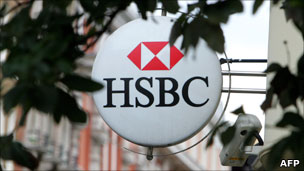The US dollar exchange rate against the Egyptian pound continued a noticeable depreciation during last week’s transactions, losing between 9 and 19 piasters at banks operating in the local market.
The American currency was affected by the Egyptian pound’s recovery, which saw a strong return in foreign investors to the market.
Egypt’s signing of a final agreement with the International Monetary Fund (IMF) for a $5.2bn loan, of which the country has obtained the first $2bn tranche, gave the local currency a further boost.
The Arab International Bank (AIB) data showed the US dollar recording a 19 piaster decline, to EGP 15.93 to buy and EGP 16.03 to sell. This compares to the data from two weeks ago, when the AIB reported that the US dollar had been trading at EGP 16.12 to buy and EGP 16.22.
As for the United Bank, the US dollar exchange rate fell from EGP 16.10 to buy and EGP 16.20 to sell, to EGP 15.93 to buy and EGP 16.03 to sell.
At Banque du Caire and ALEXBANK, the US dollar price fell from EGP 16.11 to buy and EGP 16.21 to sell, to EGP 15.94 to buy and EGP 16.04 to sell.
The American currency price also decreased by 14 piasters at the National Bank of Egypt (NBE) and Banque Misr, from EGP 16.10 to buy and EGP 16.20 to sell, to EGP 15.96 to buy and EGP 16.06 to sell.
At the Commercial International Bank – Egypt (CIB), the US dollar saw a 16 piaster decline against the Egyptian pound, to EGP 15.96 to buy and EGP 16.06 to sell.

The lowest decline was recorded at the Abu Dhabi Islamic Bank (ADIB), which reported a 9 piaster downturn to EGP 16.03 to buy and EGP 16.13 to sell.
Bankers noted that the increase in foreign exchange (FX) flows during the past week have supported the national currency. The Egyptian pound’s buoyancy follows the $440m injection by international funds and institutions on Monday alone, and the return of inbound tourism to Egypt.
This comes alongside the Central Bank of Egypt (CBE) announcement that a $2.2bn rise in the country’s cash reserve will see it record $38.2bn at the end of June 2020.
Banking expert Mohamed Abdel-Aal said that Egyptian pound is steadily improving against the US dollar due to the recent increase in the weight of FX factors. The pound has also been affected by aspects of demand, and market saturation with waves of US dollar flows in indirect investment in government investment tools.
He explained that one of the most important factors supporting the Egyptian pound is the country’s stable cash reserve, amounting to $38.2bn by the end of June 2020. Despite its partial use, Egypt’s cash reserve is, by international standards, sufficient to meet the country’s import needs for the next six months and more.
Abdel-Aal added that the country’s import bill has generally decreased, on the back of the commensurate decrease in demand for foreign exchange, and a noticeable downturn in Egypt’s oil import bill.
This has been attributed to the closure of this year’s Hajj and Umrah pilgrimages to pilgrims travelling from outside Saudi Arabia, and the reduction in foreign tourism expenses.
The US dollar interest rate differential is highly favourable to the Egypt pound, the latter of which has been positively affected by several factors, according to Abdel-Aal.
This includes: the IMF support mechanisms; Bloomberg’s positive report on the Egyptian economy; the country’s success in facing the economic repercussions of the coronavirus; and the start of the phased reopening of Egypt’s tourism sector.
Abdel-Aal anticipates that the Egyptian pound will face limited resistance at the EGP 16 level on the sale side. If bank selling prices break this price down, which has already occurred at a large number of locally operating banks, it is expected that the pound will continue to improve to EGP 15.5 level. This would happen especially if there are any breakthroughs in the surrounding geopolitical conditions, or a new wave of indirect investment flows arrives.




